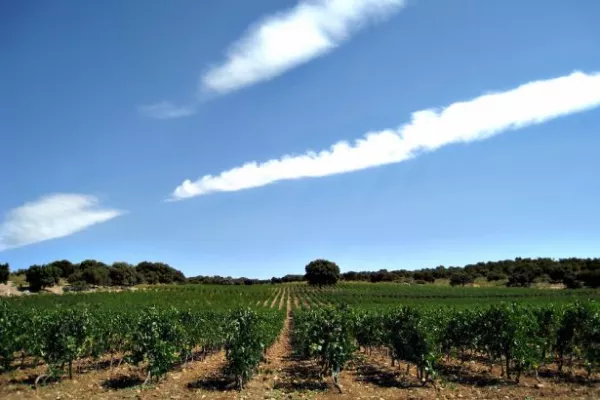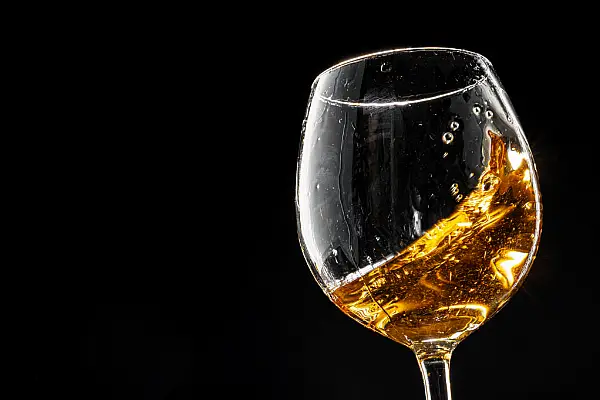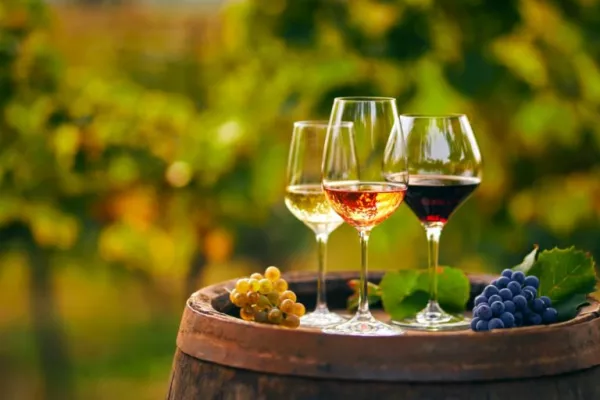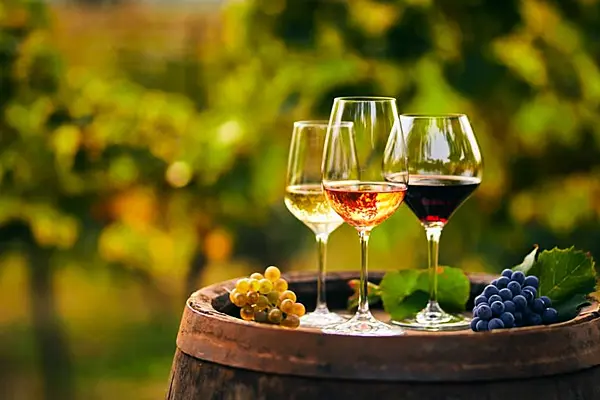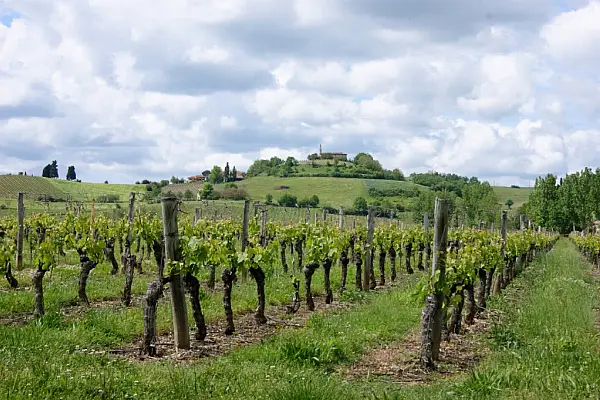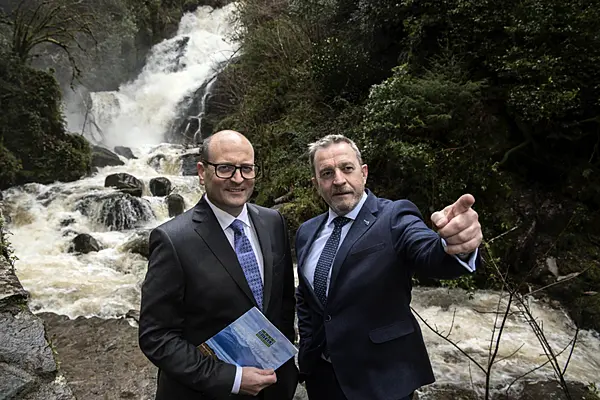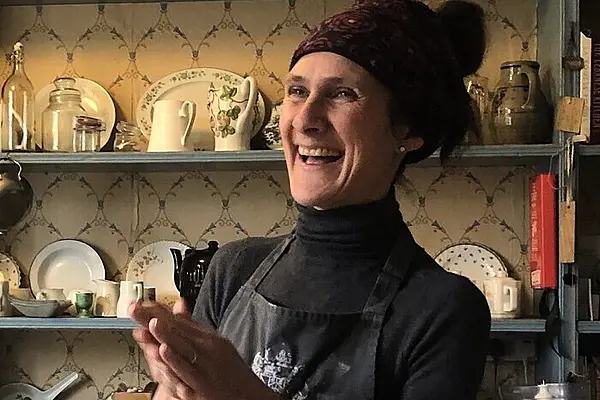Bordeaux has been a male bastion for centuries. With a handful of exceptions, men have run the famous region’s great châteaux and made the wines.
But in the past decade, a group of very 21st century women has been shaking up this boy’s club.
Three women in their thirties, who are profiled here, are among the growing number helping to create a new face for the region. While some of the rising female vintners studied enology at the University of Bordeaux, others have taken over their family château or simply become partners on a business level. Each of the three profiled below says women have to prove more than men do in this centuries-old system.
Let’s start with Stéphanie de Boüard-Rivoal, whose rosy cheeks and wide smile make her look younger than 34 and belie a powerful streak of ambition. She presides over the iconic Saint-Émilion estate, Château Angelus, having recently bought out her father’s shares.
“I’m the eighth generation; wine is in my DNA,” she explains. “But I studied finance and spent six years in London’s banking world to prove I could succeed at something completely different. That was essential to gain respect.”
De Boüard-Rivoal arrived back at Angelus in 2012, the same year the estate was promoted to the top rank of Saint-Émilion wines, alongside Château Cheval Blanc. Every 10 years the official rankings of the appellation—rising from grand cru classé, to the Premier grand cru classé B, to the exalted category of Premier grand cru classé A—are revised. For Angelus, being promoted was akin to a restaurant getting awarded a third Michelin star. One of her first ideas was the pitch-black bottle embossed in 21-carat gold for the 2012 vintage. When the wine was released in 2014, she says, it quickly sold as a collectible.
“I faced three problems,” she says. “I’m a woman, I’m young, and I’m my father’s daughter. Some people on the team had been at Angelus since before I was born.” Her commitment to new projects persuaded them she was devoted to the future of the company. And she hired several people who shared her vision.
A few negociants (wine wholesalers) objected when she wanted to be more selective about who handled the wine, and they tried to pressure her into working with them. “They said, ‘We know your father.’ I would tell them: 'So do I, and very well. Now I’m making the decisions for the company.'”
The 2015 vintage, under her guidance, is rich, velvety, and more elegant than this wine has been in the past.
Her goals? Ensuring that the château at which she grew up remains family-owned and that its wine is positioned among the top wines of the world. That means being on all leading restaurant wine lists and being visible in auctions, in addition to the château’s relationship to Bond movies. (Her father and uncle orchestrated that partnership in 2006 for Casino Royale when the winery’s representative in Paris had a connection to one of the movie’s producers. The wine appears again in the action-packed train scene in the 2015 Bond release, Spectre.)
“I follow things to the end, no matter how long it takes,” she adds, laughing. “This is what a woman can contribute. Men get tired of the details.”
Wine to try: Plush, ripe, sexy 2012 Château Angelus ($280)
Nathalie Perrodo-Samani, 33, took over Margaux châteaux Labegorce and third growth Marquis d’Alesme after her billionaire father Hubert Perrodo, founder of oil and gas group Perenco, died suddenly in an accident in 2006. She was 24, with a degree in mathematical engineering from Oxford University, and was working at Societé General in New York.
“I reached out to Corinne Mentzelopoulos, [owner of Château Margaux,] whose father died when she was 27,” Perrodo explains as we chat in a reception room at Marquis d’Alesme. “She told me, ‘You need to have a good team around you. You can do it.’”
Perrodo-Samani has surrounded herself with a female team headed by managing director Marjolaine Maurice de Coninck and has enlisted renowned consultant Michel Rolland. The wines have steadily improved. “The hardest part wasn’t being a woman,” she says, “but being young and from outside Bordeaux. People were suspicious.”
She has put her own stamp on the two estates, especially on the massive rebuilding project at Château Marquis d’Alesme, which recently opened. “I wanted it to reflect both my French father and Chinese mother,” she explains. The exteriors are classical French architecture, with moon-shaped doorways and wavy brass panels that resemble a stylized dragon tail giving the cellar an Asian feel.
One of her evolutionary ideas—for staid Bordeaux—is to open the estate to tourism and families, with gardens, dinners, and a museum. “Being a mother influenced me,” she says. “We travel as a family, with three small children. At other châteaux there is nothing for them to do. Here, kids will be able to drink grape juice, learn how wine is made, play in the children’s garden.”
Wines to try: Intense, layered 2012 Château Labegorce, a bargain at $25; juicy, fragrant, concentrated 2012 Château Marquis d’Alesme ($38)
Mountain marathon runner and equestrian champion Caroline Frey, 38, has since 2004 been winemaker at third growth Château La Lagune, which her father purchased in 2000. Passionate about wine, especially Bordeaux, he had owned vineyards in Champagne, where Frey grew up. Her first memory is the scent of grapes fermenting during harvest.
Her father, a real estate magnate, installed a team at Château La Lagune. Frey joined the company after obtaining a degree in enology from the University of Bordeaux and quickly took over the management and winemaking.
“One good thing was that my father had no experience in wine production,” she says as we converse before a long dinner at the château. “I brought knowledge.” A fashionista who loves Christian Louboutin shoes, Frey is wearing a hot pink leather jacket and a very short black skirt.
Having revamped the vineyard and cellar and vastly improved the wines, Frey is doing the same thing at two wine estates her family has recently purchased in the Rhône Valley and Burgundy.
Her first weeks on the job at La Lagune weren’t easy. “Being young and a woman made it harder, but I ignored that,” she says. “My experience in horse riding, where women compete against men, helped.”
An experimenter, Frey was one of the first Bordeaux winemakers at a cru classé to embrace organic viticulture and use horses in the vineyard. She says the most difficult thing is always to convince a team to follow your vision. “I go slow, work beside them, take things step by step, and choose people based on emotion.”
“My goal is the same for each estate. I want to bring the quality of the wines to the highest level. For me, making wine is a way of life.”
Her latest wine project is personal. Just two weeks before our interview, she purchased a tiny vineyard for her own pleasure in Switzerland, in the Valais, which is planted with Petite Arvine, a rare grape . She grins. “It will be my garden.”
Wine to try: silky, lush 2010 Château La Lagune ($70)
